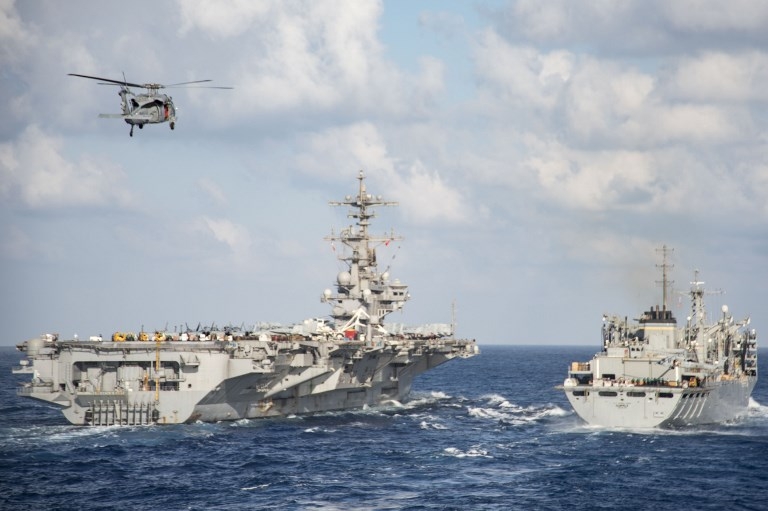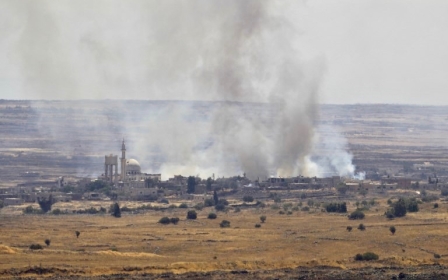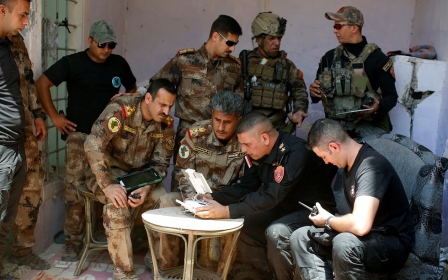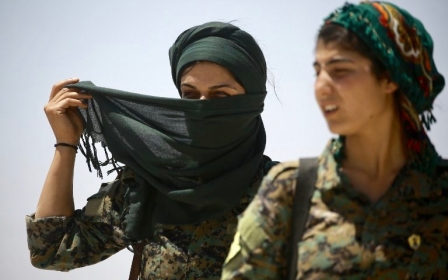US navy carrier stops off in Israel on break from Islamic State fight

A US Navy aircraft carrier, the world’s biggest, anchored off the Israeli port of Haifa on Saturday on a break from operations supporting the US-led coalition's fight against the Islamic State (IS) group.
It is the first visit by a US carrier to Israel in 17 years, according to the Israeli military. The warship, which cost about $6bn and is expected to be part of the US armory for the next 50 years, is powered by two nuclear reactors, meaning it can sail for more than 20 years without needing to refuel, the Jerusalem Post said.
An AFP photographer said that the USS George HW Bush had to anchor about 5km offshore. Israeli public radio said it did not enter the port due to its 333 metre length.
The crew will be brought ashore by ferries. They will then have dozens of buses at their disposal to give them an opportunity to tour the country, Haaretz said.
"The carrier is a part of the coalition's effort against the Islamic State," the Israeli military said in a brief statement. Prior to arriving at Haifa, the ship was deployed in the Persian Gulf before crossing the Suez Canal, Haaretz said. It has been involved in the fight with IS since the beginning of the year.
Israel said that in a joint exercise at sea earlier in the week one of its air force helicopters landed on the vessel.
The massive, nuclear-powered Nimitz-class aircraft carrier has 5,700 crew members. It rises 20 storeys above the waterline and typically carries about 80 warplanes.
Israeli radio said that it was expected to remain until Wednesday and that crew would celebrate the US 4th of July holiday ashore in Israel.
Other media reports said it was now bound to patrol off the Syrian coast and would be the first US carrier deployed there since April, when warships in the Mediterranean fired 59 Tomahawk missiles at the Syrian air force's Shayrat base.
The April strikes were ordered by US President Donald Trump in retaliation for what he said was a "barbaric" chemical attack by the Damascus government on a rebel-held town in northwestern Syria.
On Monday, the White House said that Syrian President Bashar al-Assad may be preparing "another mass murder attack using chemical weapons" and warned that the government would pay a "heavy price" if it went ahead.
New MEE newsletter: Jerusalem Dispatch
Sign up to get the latest insights and analysis on Israel-Palestine, alongside Turkey Unpacked and other MEE newsletters
Middle East Eye delivers independent and unrivalled coverage and analysis of the Middle East, North Africa and beyond. To learn more about republishing this content and the associated fees, please fill out this form. More about MEE can be found here.




